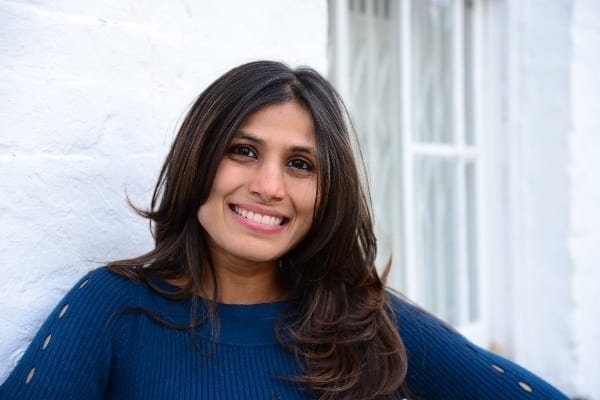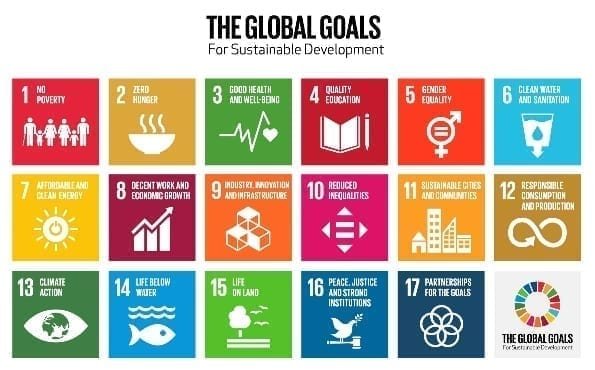This article first appeared in our Consumer Revolution issue of My Green Pod Magazine, released on 19 Dec 2019. Click here to subscribe to our digital edition and get each issue delivered straight to your inbox
Christmas is on its way and many will be feeling charitable – but letterboxes will also start to get jammed with appeals and pleas for festive giving.
It’s not easy to choose between the many causes that desperately need support, and feelings of benevolence can quickly turn to pangs of guilt that we can’t help everyone. On top of that it’s sometimes unclear where your money is being spent, and what tangible difference your donation will make.
THE CHALLENGES
‘We identified a lot of challenges with how giving is done at the moment’, reveals Darshita Gillies, founder and CEO of Maanch, a charitable giving platform. ‘The most common issues that funders experience are feelings of distrust and a lack of transparency from organisations they are interested in or give to.’
Charities and other recipients of philanthropic capital also operate in a challenging context; UK charities face increasing demands on services, cuts in available government and local authority support and difficulties around communicating impact to increasingly discerning and sceptical funders.
‘Finding the right fit and developing the right relationships is the most important thing that charities can do to sustain themselves’, Darshita explains. ‘Our aspiration is that Maanch can facilitate meaningful, transparent funding relationships for charities, and bring the joy of giving back to those who have been disenfranchised by mistrust and well-documented scandals.’
WHERE MAANCH FITS IN
Maanch is an online platform that uses data to match-make charitable givers with receivers; it allows donors to make a tangible difference in areas of specific interest, while also funnelling finance to projects that will help to accelerate sustainable development on a global scale.
It’s the first global platform dedicated to attaining the Sustainable Development Goals (SDGs) by 2030 by influencing the flow of funds across the philanthropy sector; the ambition is to create a fair future for everyone on the planet.
HOW PROJECTS JOIN UP
A huge range of organisations, working in over 25 countries, is listed on Maanch, running projects that cover everything from youth, health and adult education to justice, migration and climate change. The platform also reveals how different topics intersect, providing great insights around how the complex ecosystem all joins up.
‘This context is something that we should all be aware of when choosing which charities to give to’, Darshita tells us. ‘We should take an ecosystem approach: understand where exactly the intervention fits and get a realistic understanding of the project’s scope.’
PROGRESSING TO A SUSTAINABLE FUTURE
When it comes to understanding the broader context of individual projects in the sustainable development sector, Darshita has a wealth of experience; she has visited the UN every year since 2015 to present global data on the SDG progress.
The data presentation evolved into the blueprint for Maanch, which has been designed as a tool that aligns giving to the SDGs.
‘We have looked deeply into each constituent datapoint that makes up the 169 targets and over 230 indicators behind the 17 SDGs’, Darshita explains. ‘We then categorised progress by each country to find out what was most needed and where.’
Darshita saw that many countries lack access to basic human necessities that are required if we, as a global society, are to progress collectively to a sustainable future.
She discovered that even nations performing ‘well’ against the indicator frameworks in the developed world were in no way perfect examples of sustainability; each country has intersectional problems that need addressing.
‘This was a really insightful mapping process’, Darshita tells us. ‘It helped us to understand areas for engagement and funding across the entire globe, based on national priorities and needs.’
CAN WE ACHIEVE THE SDGs?
Darshita believes there’s a risk the SDGs won’t be met. ‘What we need to understand is that the UN is a governance body not an execution body’, she tells us. ‘It excels at framework building, data and monitoring and advocacy for change, but it is up to all stakeholders to change, support and implement solutions.’
Based on the intricacy of the connection between countries, SDGs, and global ecosystems, Darshita believes only ‘a perfect storm’ involving governments, businesses, NGOs and civil society will make the SDGs globally achievable, and that all aspects of capital movement need to be influenced and adapted if we are to achieve the SDGs.
‘What’s important is that we’re not disenfranchised by the scale of the task’, Darshita tells us, ‘but energised to accelerate that progress and make attainment more achievable through action. Where governments and businesses don’t have the interests to tread, philanthropic capital has always been the most important device to deliver positive change.’
 Play Video about This Rock Might Just Save The World
Play Video about This Rock Might Just Save The World Play Video about Play 2 hours of rock
Play Video about Play 2 hours of rock Play Video about Play 2 hours of brook
Play Video about Play 2 hours of brook Play Video about Play 2 hours of sheep
Play Video about Play 2 hours of sheep












































